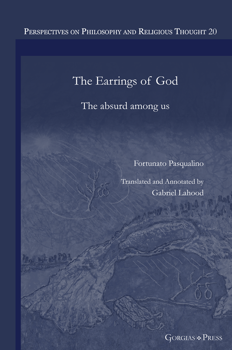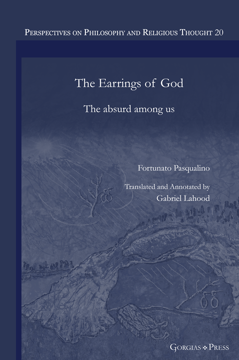Gabriel Lahood

Gabriel Lahood, translator and commentator, was brought up in Lebanon, and pursued graduate study in philosophy, theology, TESL, and literary translation in Europe (mainly Italy), USA and Canada. He has taught philosophy and religious studies in USA and the Bahamas, and ESL at the Saudi Naval Academy and in Japan for the University of Maryland. He has given lectures at various academic conferences in USA, Canada, Germany, and the Bahamas, and published academic articles in philosophy and Middle Eastern thought. He is now retired, pursuing research and writing.
The Earrings of God
The absurd among us
By Fortunato Pasqualino; Translated and Annotated by Gabriel Lahood
ISBN: 978-1-4632-4359-3
Life is full of absurdities, and human misperception of such absurdities leads to a state of unrest and fear that require meaning and direction for a happy life. F. Pasqualino addresses here samples of existential absurdities, and discusses solutions offered: Taoism offers in its paradoxes a natural self-help resource. Buddhism offers a natural wisdom that is informed by a supernatural impersonal Absolute. Hinduism offers a plethora of personal gods who embody the impersonal Absolute. The Judeo-Christian-Islamic wisdom teaches a personal Absolute God whose being is distinct from, but involved with human and non-human beings. The unifying feature of these wisdoms is: Obedience to, and love of, the Absolute can rectify human misperception of life’s absurdities, dissipate fear, and provide meaning, value and a serene life. Jesus Christ, the incarnate Absolute in Christian theology, chose to become an exemplar innocent victim for love, thus giving the most absurd but victoriously redeeming love that provides a new and sublime perspective on life’s absurdities. G. Lahood’s translation and commentary make the Italian masterpiece available to an English-speaking audience.
$123.95 (USD) $74.37 (USD)

